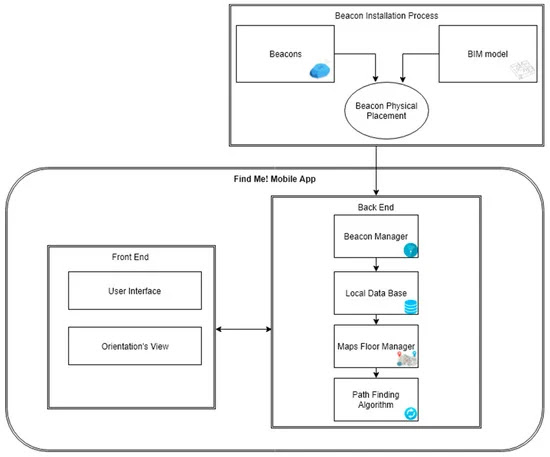This research work uses a simplified approach to combine location information from a beacon’s propagation signal interaction with a mobile device sensor (accelerometer and gyroscope) with local building information to give real-time location and guidance to a user inside a building. This is an interactive process with visualisation information that can help user’s orientation inside unknown buildings and the data stored from different users can provide useful information about users’ movements inside a public building. Beacons installed on the building at specific pre-defined positions emit signals that give a geographic position with an associated imprecision, related with Bluetooth’s range. This uncertainty is handled by building layout and users’ movement in a developed system that maps users’ position, gives guidance, and stores user movements. This system is based on an App (Find Me!) for Android OS (Operating System) which captures the Bluetooth Low Energy (BLE) signal coming from the beacon(s) and shows, through a map, the location of the user’s smartphone and guide him to the desired destination. Also, the beacons can deliver relevant context information. The application was tested by a panel of new and habitual campus users against traditional wayfinding alternatives yielding navigation times about 30% smaller, respectively. View Full-Text
Master in Integrated Business Intelligence Systems (MIBIS) - ISCTE-IUL



